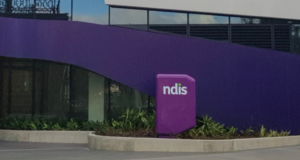Stay Safe: Use an NDIS-Registered Provider
Choosing the right disability support provider is one of the most important decisions you will make as a participant in the National Disability Insurance Scheme (NDIS). Whether you are new to the scheme or have been using it for some time, it is worth understanding the benefits of working with an NDIS-registered provider.
In this blog, we will explain what it means to be a registered provider, how that differs from unregistered providers and independent support workers, and seven reasons why choosing a registered provider is the safest and most reliable option.
NDIS-Registered, Unregistered, Independent: What’s the Difference?
What is an NDIS-registered provider?
An NDIS-registered provider is a business or person that the NDIS Quality and Safeguards Commission has approved to deliver supports to participants. To become registered, a provider must meet the NDIS Practice Standards, which are rules about how services should be delivered. These rules cover areas such as safety, staff training, privacy, and respect.
The Commission checks whether providers meet these standards through regular audits. Only registered providers can offer services to people who have NDIA-managed plans.
Lifely is an NDIS-registered provide. You can find other NDIS-registered providers by searching the NDIS website’s Provider Finder.
What is an Unregistered NDIS Provider?
An unregistered provider is someone who offers disability support but has not gone through the official NDIS registration process. These providers can still work with people who self-manage or use a plan manager, but they are not checked by the NDIS Commission in the same way.
Did you know unregistered NDIS providers and independent support workers may have no qualifications, experience or background in the disability sector? All they need is an Australian Business Number (ABN), which they can get in under 10 minutes. Once they have that, they can begin offering services to some of Australia’s most vulnerable people.
The NDIS is currently the only care scheme in the country that allows this level of access without formal oversight, qualifications or regulation. This means there is no guarantee that an unregistered provider has the skills or knowledge needed to support people with disability safely.
Some unregistered providers may offer good services, but there are fewer safeguards in place to protect participants if something goes wrong. There is also less accountability, fewer requirements around staff screening, and no regular audits or complaint handling obligations.
What is an Independent Support Worker?
An independent support worker is usually a sole trader who provides services directly to participants. Most of them are unregistered. They may offer more flexibility or lower prices, but they are not required to follow NDIS rules unless they choose to register.
This can mean less oversight and fewer protections for participants. There are no guarantees they have the right qualifications, training, or experience to provide safe and appropriate care. They also may not have insurance or complaint procedures in place.
Most independent workers may be caring and dedicated, but using an independent support worker comes with risks, especially because they work alone and don’t have an organisation to back them up. If they become unwell, take leave, or face an emergency, there is often no one to step in and continue your support, which can lead to sudden service interruptions.
Unlike larger providers, independent workers work alone and don’t have access to professional advice, ongoing training, or internal quality checks, which can impact the standard of care they provide. There’s also no formal complaints process or oversight body to hold them accountable, making it harder to resolve issues if something goes wrong. Without the structure and safeguards that come with a registered provider, you may face greater risks to your safety, consistency of care, and peace of mind.
More information about NDIS Providers can be found on the NDIS website.
Six reasons to choose an NDIS-registered provider
1. Registered Providers Are Held to Strict Safety Standards
NDIS-registered providers must follow strict quality and safety rules set by the NDIS Commission. These rules are known as the NDIS Practice Standards. They cover everything from staff training to service delivery.
The standards vary depending on how risky the support is. For example, providers delivering personal care or behaviour support must meet higher standards than those offering social activities. Registration gives you confidence that the provider is operating safely and ethically.
Unregistered providers do not have to meet these same standards. They are not required to prove the quality of their services to any external body.
2. Registered Providers Are Checked to Keep You Safe
Registered providers are regularly audited to ensure they continue to meet the required standards. These audits check service quality, record keeping, and participant satisfaction. This process helps ensure providers remain responsible and up to date. It also means that any problems are more likely to be found and fixed quickly.
The frequency of these audits depends on the type of services they offer and their associated risk levels. Providers delivering higher-risk or more complex supports are required to undergo a certification audit every three years. Additionally, a mid-term audit is conducted 18 months into the registration period to ensure ongoing compliance with the NDIS Practice Standards. Providers offering lower-risk or less complex supports, such as therapeutic services or assistive technology, undergo a verification audit every three years.
In addition to these scheduled audits, the NDIS Commission may require providers to undergo additional audits if significant issues are identified or if the services offered change. This structured audit process ensures that NDIS-registered providers maintain high standards of quality and safety in their service delivery.
Unregistered providers are not audited by the NDIS Commission, so there is less oversight of their work. This lack of accountability can create opportunities for dishonest or unqualified providers to take advantage of NDIS participants and their families by overcharging for services, providing poor-quality or unsafe support, or even misusing personal and financial information. Without regular checks or enforced standards, there is little to stop them from operating unethically or cutting corners, putting participants at real risk of harm or financial loss.
3. NDIS-Registered Providers Offer Clear Complaint Processes
All registered providers must have a complaints system in place. This includes:
- A clear way for you to make a complaint
- A process to record and respond to complaints
- Support to help you speak up if needed
This creates a safe space for you or your family to raise any concerns. You should be able to speak freely, knowing the provider will take your complaint seriously and try to fix the problem.
Unregistered providers do not have to follow the same complaint rules, and they may not have a formal process in place. This means that if something goes wrong, participants and their families may have nowhere to turn and no clear way to resolve the issue. Without a proper system for handling complaints, concerns can be ignored or dismissed, leaving participants feeling unsupported and vulnerable. In some cases, it may even allow poor or unsafe practices to continue unchecked.
Detailed information about NDIS audits is available on the NDIS Commission’s website.
4. NDIS-Registered Providers Use Screened Staff
Registered providers must make sure their staff pass the NDIS Worker Screening Check. This check looks at whether someone might pose a risk to participants. Staff are also encouraged to complete training that covers topics like human rights, respect, and safety.
Worker screening helps protect participants from harm. According to NDIS data, of over 154,000 unregistered providers, only around 6,400 had any staff who had passed an NDIS screening check (as of June 2023). This means the risk may be significantly higher if you use an unregistered provider, as there is no guarantee that the people delivering support have been properly vetted.
The NDIS Review found that some workers who posed a risk had deliberately chosen to operate as unregistered providers to avoid the mandatory screening process. This is deeply concerning, as it opens the door for individuals with a history of violence, abuse, or serious misconduct to work directly with people who may have complex needs or limited ability to advocate for themselves.
Participants and their carers rely on support workers to enter their homes, help with personal care, manage medication, and build trusting relationships. When workers are not screened, participants are at risk of physical, emotional, or financial harm. Carers may also face added stress, anxiety, and even burnout from constantly having to monitor the quality and safety of services.
Registered providers are legally required to ensure their staff have the appropriate clearances and training. This gives families peace of mind that the people supporting them have been properly assessed and are safe to work with vulnerable individuals. Without this safeguard, the risks can be far-reaching and deeply damaging.
5. Registered Providers Offer Stability
Using an NDIS-registered provider means you are working with someone who has already shown they are committed to doing things the right way. They follow rules, respect your rights, and aim to deliver safe, high-quality services.
As the NDIS continues to evolve, registered providers are in the best position to keep delivering services that meet your needs. They are more likely to stay in the system, grow their services, and continue supporting you in the long term.
6. Lower Your Risk of Fraud with a Registered Provider
Registered providers are held to strict financial and ethical standards by the NDIS Commission. They must keep clear records, follow proper invoicing practices, and agree to audits that check for misuse of funds. This oversight helps protect your NDIS plan from being misused or overcharged.
In contrast, unregistered providers are not subject to the same level of scrutiny, which can significantly increase the risk of financial fraud, identity theft, and other forms of deception. Without regular audits or oversight from the NDIS Commission, there is no system in place to detect or prevent dishonest billing practices, such as charging for services that were never delivered, overcharging for basic supports, or manipulating invoices to access more of a participant’s funding.
Even more concerning is the risk of identity theft. Unregistered providers may request sensitive personal information, such as a participant’s NDIS number, date of birth, or Medicare details, to process payments. In the absence of proper data protection policies or secure systems, this information can be mishandled, stored unsafely, or even used fraudulently. Once personal or financial details are compromised, participants and their families may face serious consequences, including unauthorised access to their NDIS plans or the misuse of their identities to commit further fraud.
Unfortunately, because unregistered providers are not monitored in the same way as registered ones, there is little recourse if something goes wrong. Participants may not realise they have been defrauded until their funding is unexpectedly depleted or they begin receiving notices for services they never received. Choosing a registered NDIS provider helps reduce this risk by ensuring that strong protections, ethical standards, and accountability measures are in place to keep participants’ finances and personal information secure.
The NDIS Commission website offers detailed information on NDIS fraud.
7. Major Changes Are Coming to NDIS Provider Registration
The NDIS is set to change. Following a major national review of the scheme, the Australian Government has agreed to move toward a system where nearly all NDIS providers will need to be registered.
Why? Because the review found that registration improves safety, visibility, and accountability. It ensures providers take responsibility for the services they deliver and gives participants more protection and peace of mind.
A special taskforce—the NDIS Provider and Worker Registration Taskforce—has shared key advice on how these changes should be rolled out. Their goal is to create a safer and more transparent system for everyone. Read the Taskforce’s full recommendations here.
While not every provider will be required to register, the majority will. This includes any provider offering higher-risk or more personal supports. Providers that only sell off-the-shelf goods or those working with fully self-managed participants may not need to register, but they will still need to meet basic visibility standards, like proof of purchase.
The Taskforce recommends a new system with four levels of registration, depending on the type of support and the level of risk involved:
-
Advanced Registration: For providers delivering high-risk supports in high-risk environments (e.g. group homes and Supported Independent Living).
-
General Registration: For those offering medium-risk services, such as high-intensity personal care or services involving significant one-on-one contact.
-
Basic Registration: For low-risk services, like some community participation activities or sole trader supports with minimal personal contact.
-
Self-Directed Support Registration: For participants who directly engage and manage their support workers.
Goods and services from mainstream retailers, such as hardware and department stores, will not require registration, but there must be transparency through receipts or payment tracking.
Registration rules will apply equally to all providers, whether they operate online, in person, independently, or through a platform. Everyone will be held to the same standard to protect participants no matter how they access their supports.
Under the current rules, all providers offering Supported Independent Living or Home and Living support should move to Advanced Registration immediately.
The Taskforce also recommends creating a national registration scheme for all NDIS workers. This would help weed out unsafe or unqualified staff and provide greater peace of mind for participants and families. For professionals who already hold a registration (like nurses or allied health workers), the system would recognise their existing credentials to avoid double handling.
These changes mean better safety, more consistent service quality, and stronger protections for people with disability. But it also means many of today’s unregistered providers may no longer be allowed to operate. Some may close down rather than go through the formal registration process.
That’s why now is the time to think about switching to an NDIS-registered provider. Making the move early can help you avoid service disruptions, long waiting lists, and the stress of last-minute changes when the new rules take effect.
Registered providers are already set up to meet future standards. They’ve been audited, have trained staff, and follow strict rules to keep you safe. Choosing a registered NDIS provider now means you can feel confident your supports will continue without interruption.
Final Thoughts
Choosing an NDIS-registered provider isn’t just a smart decision—it’s a safe one. It means peace of mind, knowing your provider has been independently checked, their staff are properly screened and trained, and there are clear rules and complaint processes in place if something goes wrong. Most importantly, it means you’re protected.
With big changes coming to the NDIS, working with a registered provider like Lifely will soon become essential. As unregistered providers face tougher rules—or exit the system altogether—staying with an unregistered provider could leave you without the support you rely on.
If you’re currently using an unregistered provider or an independent support worker, now is the ideal time to make the switch. Lifely is a trusted, NDIS-registered provider committed to delivering high-quality, safe, and reliable support services. We’re here to help you navigate the changes and continue receiving the support you deserve, without interruptions.
Get in touch with Lifely today and make the move to a provider that’s ready for the future—and ready to support you every step of the way.
Ask us about our NDIS services




